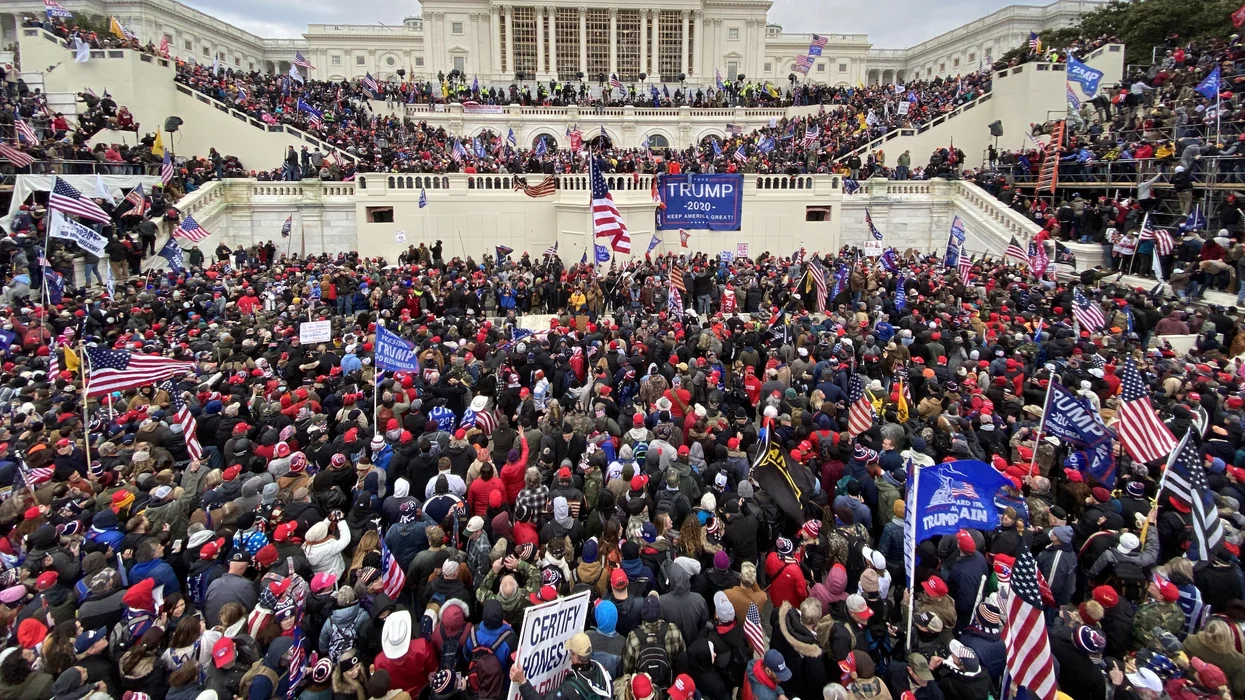A coalition of January 6 defendants has filed a groundbreaking $50 billion lawsuit against the Department of Justice (DOJ), alleging systemic misconduct, political persecution, and violations of their constitutional rights during the investigation and prosecution of Capitol riot cases. This unprecedented legal action has sparked national attention, drawing sharp criticism of the DOJ from legal experts and conservative commentators alike.
The lawsuit, filed in federal court, accuses the DOJ of abusing its authority to unfairly target individuals involved in the January 6, 2021, protests at the U.S. Capitol. Plaintiffs claim the department’s actions amount to political weaponization, with one lead attorney stating, “This is about restoring the rule of law and holding the government accountable for overreach.”
Allegations of Political Bias and Rights Violations
The plaintiffs—many of whom are described as “political prisoners” by their supporters—allege they were subjected to unequal treatment compared to left-wing protesters involved in similar incidents, such as those linked to the 2020 riots. The lawsuit contends that the DOJ’s investigation was conducted with political bias, violating the due process and equal protection rights enshrined in the Constitution.
According to the filing, several defendants were detained for extended periods under harsh conditions, raising concerns about cruel and unusual punishment. The document cites alleged mistreatment, such as denial of medical care and restricted access to legal counsel, as evidence of federal misconduct.
A spokesperson for the plaintiffs described the situation as a “tragic miscarriage of justice,” claiming the DOJ used the events of January 6 to push a partisan agenda.
Broader Implications and Public Reaction
This lawsuit has ignited significant controversy, with many viewing it as a bold attempt to challenge federal overreach. Critics of the DOJ argue that the agency’s handling of January 6 cases reflects a double standard in law enforcement.
“This legal action exposes a troubling pattern of selective prosecution,” said a prominent legal analyst. “The stark contrast between how January 6 defendants and other groups have been treated is undeniable.”
Supporters of the lawsuit view it as an essential step toward accountability, particularly for those who believe federal agencies have become excessively politicized. The $50 billion damages figure underscores the severity of the claims, aiming to compel systemic reform within the DOJ.
Explosive Allegations of Overreach
Among the most explosive claims in the lawsuit are accusations that DOJ officials engaged in coercive tactics to secure guilty pleas and inflated charges to paint a broader narrative of domestic terrorism. Plaintiffs argue that these tactics were intended to discourage dissent and bolster a politically charged narrative.
While the DOJ has not publicly commented on the lawsuit, previous statements from department officials have defended their actions as necessary to protect democracy and uphold the law. However, the stark accusations presented in this legal filing have put the agency under a harsh spotlight.
Conservative Leaders Rally Behind Plaintiffs
The lawsuit has received significant backing from conservative leaders and organizations, many of whom have long criticized the DOJ’s handling of January 6 cases. Several high-profile figures have described the defendants as “pawns in a political game,” echoing the plaintiffs’ allegations of selective enforcement.
“This lawsuit is about more than financial compensation; it’s about sending a clear message that the government is not above the law,” said a prominent conservative commentator. “The public deserves transparency and accountability.”
Challenges Ahead
Legal experts note that the lawsuit faces significant challenges, particularly given the scope of the claims and the burden of proving systemic misconduct. However, the case’s high profile and its potential to expose DOJ practices could lead to increased scrutiny of the department’s actions and broader conversations about fairness in the legal system.
As the lawsuit progresses, it promises to serve as a litmus test for the balance between national security concerns and individual rights. For now, it has intensified the debate over how federal authorities have navigated the aftermath of January 6 and their broader role in maintaining justice in a polarized nation.

